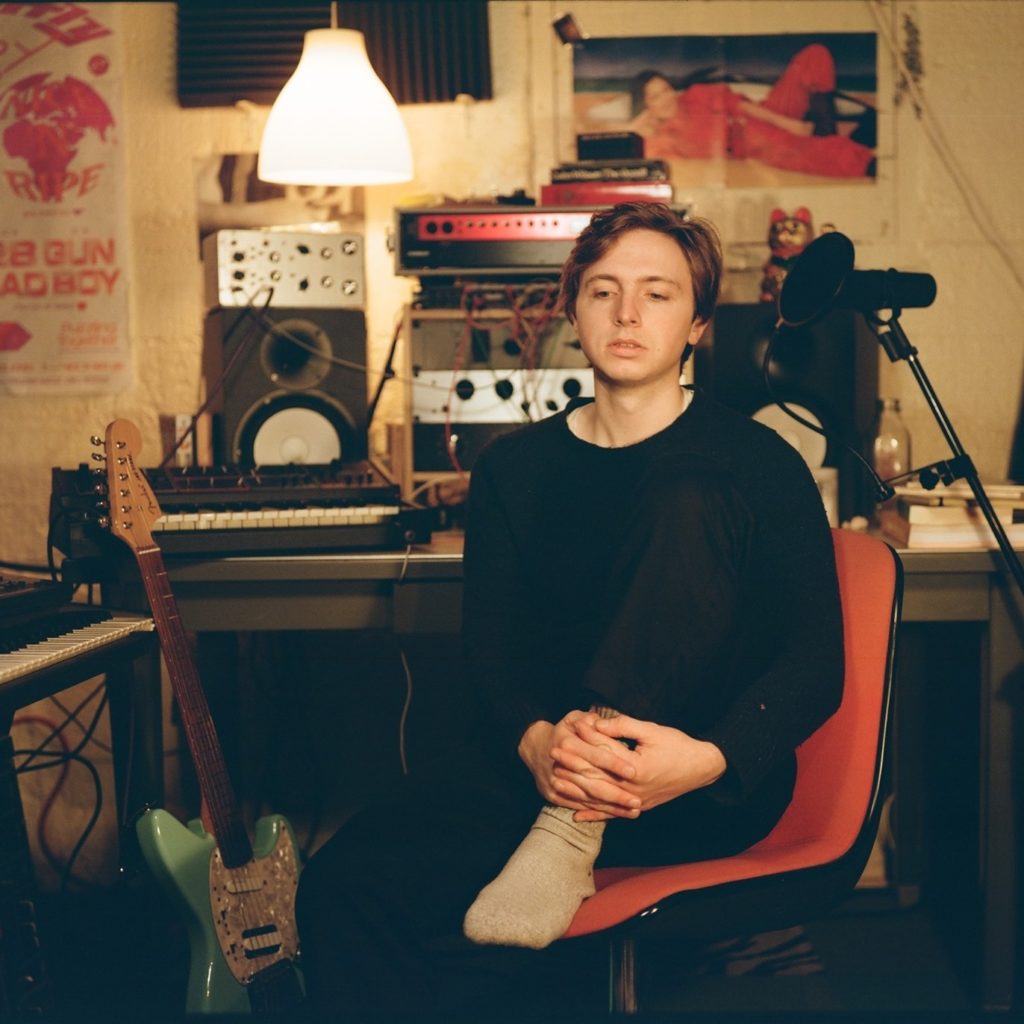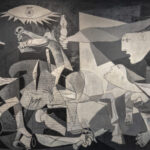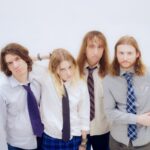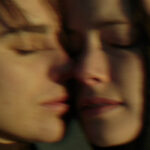Album Premiere: Happy Dagger — ‘Nowhere’
Posted: by The Alt Editing Staff

The music of Portland musician Jesse Robertson, who writes and records as Happy Dagger, exists in a universe all its own. On his sophomore full-length Nowhere, which we’re premiering below, Robertson has built off the promises of his self-titled debut from 2016, ever so slightly tinkering with his sound to craft an infectious collection of glossy pysch-pop bursting with saccharine melodies and ornate arrangements. Above all else, Nowhere is a record about hoping for a better tomorrow, filtered through the isolated environment it was created in and viewed through a kaleidoscopic lens.
Over the course of the ten tracks that make up Nowhere, Robertson stuffs as many ideas as he can possibly fit, running the gamut from soft-pop to freak folk. Even when he’s exploring new territories on tracks such as “Siobhan” and “Still I Strategize,” his dreamy and subdued vocal delivery helps to keep things grounded. But the album’s greatest strength lies in Robertson’s warm production style, which helps make the entire record feel more cohesive as a whole. Songs like “Tomorrow,” which sounds like an unearthed gem from some obscure 60’s record, are elevated to new heights in Robertson’s hands.
Stream Nowhere below, ahead of its release this Friday via Day to Day Records, and then check out my interview with Jesse Robertson about the new album, how the Portland DIY scene has influenced him as a songwriter, what he’s been watching during quarantine, and more.
The Alternative: Your music has a very nostalgic quality to it, I was curious as to whether or not that feeling is something you’re actively trying to evoke in your songs?
Jesse Robertson: That might be a subconscious thing that comes through. When I was making the new record I didn’t have a “sound” that I was going for or a specific decade I was trying to evoke. I tend to pick and pull things from records I like and recontextualize them in whatever I’m working on, so maybe there’s a hauntological element to that blending of past sounds. Even then, I feel like that’s more utopian than nostalgic. The short answer is no, I think that impression is likely the result of the sounds I choose and lyrics I write intuitively.
What was the first song that you ever learned to play on guitar?
I actually learned how to play the bass before the guitar. My older brother gave me his old bass as a gift and taught me how to play “Come As You Are” by Nirvana. I started playing guitar a few years later and I’m fairly certain the first song I learned was something off of Appetite for Destruction.
I know that you’ve worked with a number of bands in Portland in various capacities, how do you think the music scene there has influenced you as a songwriter?
After putting out my first record I felt constrained by genre—like people expected me to make a certain type of psych music—and struggled with a period of self-imposed writer’s block. Writing music began to feel like a chore and didn’t really stop feeling that way till I started to collaborate and play with my friends in Portland more. We all make very different types of music, which I think creates an inspiring environment that ultimately encourages us to push ourselves and experiment artistically. I think there’s a playful part of that too, like thinking “can I write a song that this specific person will appreciate?” or trying to bury some inside joke of ours in the mix.
What was the process of making this new record?
I started demoing Nowhere late at night in my basement studio last year. I was working for a carpenter at that time and would often be too exhausted to do much of anything during the day after work, but I would get a second wind around midnight and start recording. I wanted the songs to be able to stand on their own without production trickery, so I just wrote with the acoustic guitar initially. I also was thinking about the tracks in the context of the album early on, trying to craft a cohesive, larger whole. I definitely think more in terms of albums than individual songs, that scale works better for my creative process. Once I was happy with the songs, I started to flesh them out, tracking the rhythm section first with my friend Parker Hall who drummed on the record. Then I began overdubbing the rest of the arrangements alone and mixing as I went. I do a lot of processing with tape and hardware, which, though important to the sound of the record, is almost more important in a ritual sense. Something about having to plug everything in and sit there while the audio passes through the circuitry feels so exciting and essential. I also very much subscribe to Tony Visconti’s rule of printing effects and being decisive wherever possible—if it sounds cool in the moment, don’t give yourself the option to undo it. I find I’m much more creative that way. In all, it took me probably 6 or so months to finish writing, recording, and mixing everything. I probably could have tinkered longer, but what’s the fun in sitting on a record forever?
Are there any songs on the album that were particularly difficult to piece together?
“Still I Strategize” was probably the hardest song to arrange. The idea for it came to me while I was driving, so I frantically tried to record voice memos at red lights while it was still fresh in my mind. Listening back later, I realized it had all these weird time signature changes that made piecing it together a challenge. I thought I could make it work, though, because I was listening to a lot of Os Mutantes and Syd Barrett-era Pink Floyd, both of which incorporate dynamic and rhythmic changes through almost heavy-handed sounding tape splicing. I like that sound, it’s jarring in a way that I find aesthetically pleasing.
What’s the best movie that you’ve watched during quarantine?
I rewatched Kubrick’s Dr. Strangelove the other night (I hadn’t seen it since I was probably like 16) and it blew me away. It’s so dark and funny. It perfectly captures the absurdity of Cold War paranoia and the nuclear arms race more broadly. It’s actually probably a tie between that and Parallax View, a favorite I also rewatched a few weeks ago. Warren Beatty plays a washed up reporter who witnesses the assassination of a presidential candidate and then finds himself on the trail of the shadowy Parallax Corporation. It’s a great movie about conspiracy because it operates like conspiracy itself, leaving so much seemingly unanswered and therefore everything and everyone in question.
If you could take any character from the Star Wars canonical universe on tour with you, who would it be?
Dash Rendar. I’ve been replaying Shadows of the Empire recently, which is very much informing my answer. Even though Dash is a smuggler and somewhat untrustworthy hired gun, I think with the right amount of convincing (money) he’d be indispensable. I can imagine flying the Outrider isn’t that different from driving a van…
Head on over to Happy Dagger’s Instagram this Sunday at 5PM PST for a live stream of the new album
_
Michael Brooks // @nomichaelbrooks
The Alternative is ad-free and 100% supported by our readers. If you’d like to help us produce more content and promote more great new music, please consider donating to our Patreon page, which also allows you to receive sweet perks like free albums and The Alternative merch.










